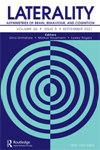奥克塔维亚·巴特勒的《播种者的寓言》中超越新自由主义的蹩脚集体主义
IF 0.9
4区 心理学
Q4 PSYCHOLOGY, EXPERIMENTAL
引用次数: 1
摘要
奥克塔维亚·巴特勒1993年的小说《播种者的寓言》的重要性继续显现,因为巴特勒对加州城市被新自由主义撤资撕裂的先见之明的想象正在实现。在黑人女权主义研究开辟的空间之后,本文考察了巴特勒在文学和文化研究之外的意义。我认为《寓言》是黑人女性主义对政治经济学的跛脚理论,它诊断了新自由主义下不稳定的不利条件,也为跛脚和疯狂的生存规定了集体。新自由主义描述了发达资本主义的全球阶段,在这个阶段,政府受到激励和约束,强制执行包括私有化、放松管制和市场自由化在内的经济政策。正如Jodi Melamed所定义的那样,新自由主义需要某种政治治理,将企业的利益置于人民的福祉之上(2011)。新自由主义的治理产生了我所说的“使人丧失能力的矛盾”,然而,不稳定状况的责任却被转移到了身体自身身上。在《播种者的寓言》中,巴特勒将先进资本主义下新自由主义治理的这些令人无能的矛盾理论化,将导致痛苦的政治经济制度纳入重点。《寓言》还描述了通过有意识地创建社区和团结网络来对抗新自由主义国家对身心的贬值,从而使跛子和疯狂生存的策略成为可能。聚集在一起阅读和讨论小说,而不是分散人们对危机的注意力,这进一步加剧了低俗和疯狂集体的出现。因此,这是为残废和疯狂的人建立未来的一个紧迫而及时的实践。本文章由计算机程序翻译,如有差异,请以英文原文为准。
Crip Collectivity Beyond Neoliberalism in Octavia Butler’s Parable of the Sower
The importance of Octavia Butler’s 1993 novel Parable of the Sower continues to crystalize, as Butler’s prescient imagining of urban California torn apart by neoliberal divestment comes to fruition. Following in the space opened up by Black feminist scholarship on Butler, the present essay examines her relevance beyond literary and cultural studies. I argue that Parable is a Black feminist crip theorization of political economy that diagnoses the disabling conditions of precarity under neoliberalism and also prescribes collectivity for crip and mad survival. Neoliberalism describes a global stage of advanced capitalism wherein governments are both incentivized and disciplined into enforcing economic policies that include privatization, deregulation, and market liberalization. As Jodi Melamed defines it, neoliberalism requires a certain kind of political governance, that puts the interests of business over the well-being of people (2011). Neoliberal governance engenders what I call “disabling contradictions,” yet the blame for conditions of precarity is deflected onto bodyminds themselves. In Parable of the Sower, Butler theorizes these disabling contradictions of neoliberal governance under advanced capitalism, drawing into focus the political economic systems that cause suffering. Parable also depicts strategies for crip and mad survival that are made possible through the conscious creation of community and networks of solidarity that counter the neoliberal state’s devaluation of bodyminds. Gathering to read and discuss the novel, rather than a distraction from the crises, furthers the emergence of crip and mad collectivities. As such, it is an urgent and timely practice for building futures for crip and mad people.
求助全文
通过发布文献求助,成功后即可免费获取论文全文。
去求助
来源期刊

Laterality
Multiple-
CiteScore
3.60
自引率
7.10%
发文量
26
期刊介绍:
Laterality: Asymmetries of Body, Brain and Cognition publishes high quality research on all aspects of lateralisation in humans and non-human species. Laterality"s principal interest is in the psychological, behavioural and neurological correlates of lateralisation. The editors will also consider accessible papers from any discipline which can illuminate the general problems of the evolution of biological and neural asymmetry, papers on the cultural, linguistic, artistic and social consequences of lateral asymmetry, and papers on its historical origins and development. The interests of workers in laterality are typically broad.
 求助内容:
求助内容: 应助结果提醒方式:
应助结果提醒方式:


